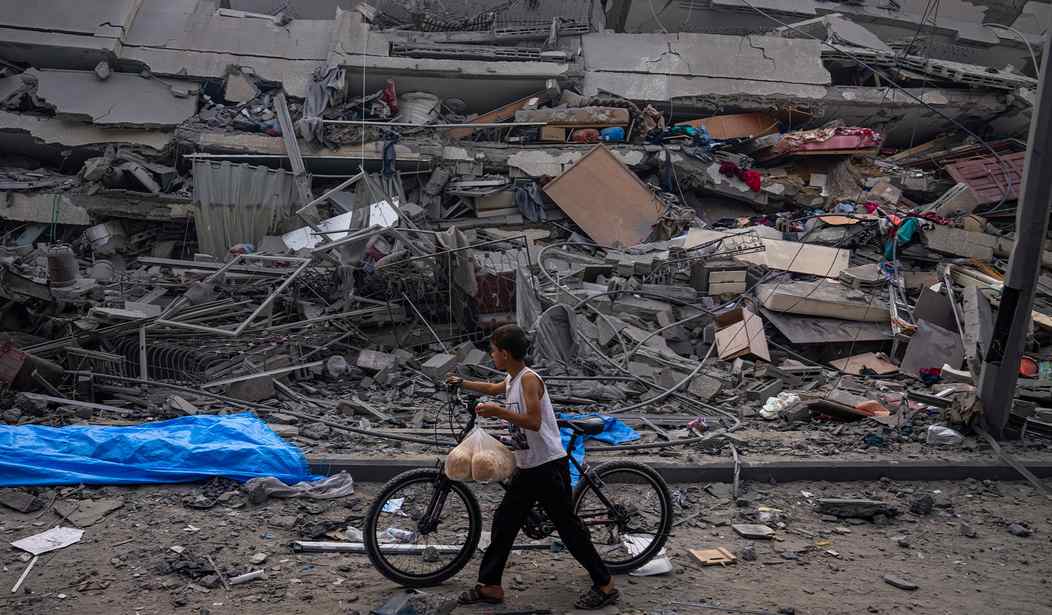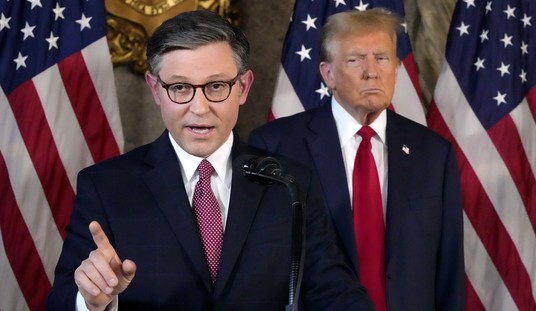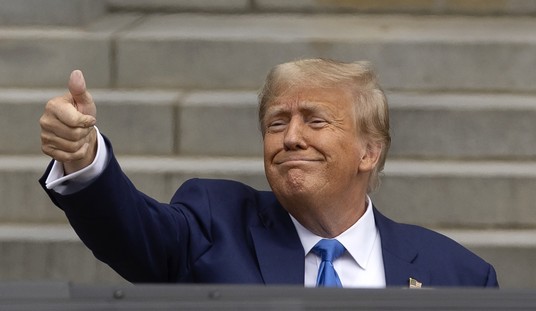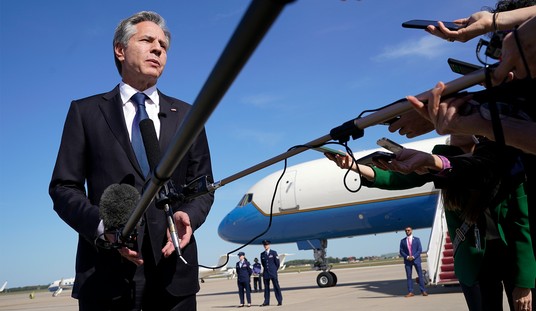In mid-September, the United States authorized the release of $6 billion to Iran in the form of unfrozen Iranian assets to help secure the return of five U.S. citizens. Seeing as how we provided a metric crap-ton of money to a country that literally funds Hamas and Hamas executed hundreds of innocent Israelis, we should probably know a little bit about these people.
Today, five innocent Americans who were imprisoned in Iran are back on American soil and in the arms of their loved ones.
Welcome home.
I remain unflinching in my efforts to bring home every American held hostage or wrongfully detained. pic.twitter.com/Et2TNPQjMm
— President Biden (@POTUS) September 19, 2023
Emad Shargi
Born in Iran, Emad Shargi came to America as a child. He became a dual citizen, met and married his Iranian-born-dual-citizen wife, Bahareh, and raised a family near Washington, D.C. The couple maintained family ties in Iran and, when their daughters left home in 2017, opted to return to Tehran. A tech investment professional, Emad was arrested in 2018 in his home in the middle of the night. Iranian officials took his passport and other documents. He was convicted of spying and sentenced to 10 years in prison. In 2019, he was released with an official document clearing his name of all charges but was not given his passport. Eleven months later, Emad was called back to court and told he had been convicted of espionage, without a trial, evidence, or a defense.
Siamak Namazi
According to CNN, “the 51-year old was arrested when he was on a business trip to Iran [in 2015] in what the UN has described as an ‘arbitrary detention.’ The Dubai-based businessman was charged with having ‘relations with a hostile state,’ referring to the U.S. He was sentenced to 10 years in prison.” Namazi is described by the outlet as an Iranian-American. The Associated Press refers to him as an energy executive.
Born in Iran in 1971, Namazi and his family came to the United States in 1983; he became a citizen in 1993. Because he maintained his Iranian citizenship, he was required to return to the country for two years of required military service. Namazi became a prominent voice of young Iranian-Americans in the late 1990s for leveraging his young generation to mend relations between the U.S. and Tehran, writing “At a time when few Americans have been able to travel to Iran, it has been the Iranian-Americans who fulfilled the role of cultural ambassadors to Iran. Given their knowledge of both cultures, they are perhaps best suited for this position.”
In 2018, President Trump pulled out of the Iran nuclear deal with little to no regard for Siamak Namazi or the other American citizens held there. Namazi went on a hunger strike in January 2023, imploring President Biden to work harder for his release.
Morad Tahbaz
Unlike Siamak Namazi and Emad Shargi, Morad Tahbaz has a third citizenship: U.S., Iran, and the UK. Environmentalists from the Persian Wildlife Heritage Foundation, including Tahbaz, were arrested in Iran in 2018 for installing cameras to monitor endangered species; Iran claimed it was espionage and a sham trial found all guilty. Morad was sentenced to 10 years in prison.
The environmental activist was part of the 2022 UK-Iranian prisoner deal but never made it out of the country; he was sent back to prison.
There are many unanswered questions, like
- Why was Morad Tahbaz not taken back to the UK despite the agreement?
- Why did Siamak Namazi’s hunger strike end?
- Why was Emad Shargi released but not permitted to leave Iran?
- Is one of the unnamed ransomed a female Iranian-American scientist?
- Why are two families of the ransomed five withholding their identities?
- How do the people involved feel about Iran and Hamas?
Americans are being held hostage in Gaza, China, North Korea, Russia, Pakistan, Syria, and Venezuela, so what is it about these five in Iran that leveraged a deal? What did Qatar get out of the deal? Keep in mind that Qatar is on friendly terms with China and Russia, and hosted a talk between U.S. and Taliban officials earlier this year. Interestingly, Doha is facilitating talks between Hamas and Israel. Who knows, maybe Qatar’s payoff is goodwill, security, and economic prosperity.
$6 billion in Iranian assets might buy strategic alliances, but we’re going to need receipts before we can certify that.
The emir of Qatar, Sheikh Tamim ibn Hamad Al Thani, wrote in a post on X:
مستقبل الشعوب والأجيال القادمة مرهونٌ بالقضاء على مآسي الحاضر، وينبغي توحيد جهود مجتمعنا الدولي لمجابهة المعوّقات التي تواجه الإنسانية جمعاء كالفقر والظلم الصّارخ المتمثل بالاحتلال والعنصرية وجرائم الحرب، من خلال التعاون في تنفيذ القانون الدولي. pic.twitter.com/148LwCIakb
— تميم بن حمد (@TamimBinHamad) September 19, 2023
This translates to:
The future of peoples and future generations depends on eliminating the tragedies of the present, and the efforts of our international community must be united to confront the obstacles facing all of humanity, such as poverty and the blatant injustice represented by occupation, racism, and war crimes, through cooperation in implementing international law.
We can speculate over party affiliations, voting records, and campaign donations all day long, but what conservatives need to contemplate is how pro-life they really are. If every life counts, does it count for $1.2 billion? If every life counts, does it permit negotiating with terrorists? If every life counts and five are saved and thousands are killed, is it a worthy trade? Conversely, do we spare thousands at the cost of five? If one of the five supports Hamas, does that change your answer?
These are not easy questions to grapple with, nor are there clear answers. These are merely intended to provoke a soul-baring thought exercise because only when we challenge our beliefs can we defend them.
Jesus tells a parable in Matthew 13:
“The kingdom of heaven is like a man who sowed good seed in his field; but while men slept, his enemy came and sowed tares among the wheat and went his way. But when the grain had sprouted and produced a crop, then the tares also appeared. So the servants of the owner came and said to him, ‘Sir, did you not sow good seed in your field? How then does it have tares?’ He said to them, ‘An enemy has done this.’ The servants said to him, ‘Do you want us to then go and gather them up?’
“But he said, ‘No, lest while you gather up the tares you also uproot the wheat with them. Let both grow together until the harvest, and at the time of harvest I will say to the reapers, ‘First gather together the tares and bind them in bundles to burn them, but gather the wheat into my barn.'”
As humans, pro-lifers, conservatives, and Americans, we need to be very careful how brazen we are with our calls for violence, revenge, and justice at the expense of more bloodshed. Hamas establishes operational hubs in hospitals and schools, and deters innocents from evacuating the targeted areas to use them as human shields. They will stop at nothing to preserve their own lives while killing as many Jews as possible, even if it means sacrificing their own women and children. Let us, in our thirst for justice, never lose sight of the value of life.
$6 billion in Iranian assets should not buy compromised principles.
'No mercy': Pro-Israel supporters gather in Boston Common, call for Hamas to be destroyed https://t.co/kcEEnVxWq7
— Fox News (@FoxNews) October 10, 2023
Related: The Colonization of the West (Or Killers in Our Midst)
As for the five who were ransomed, I cannot imagine how they are reconciling their joy and relief of being free against the knowledge that the deal that saved them funded terrorist activity that murdered and injured thousands. That is a quagmire they’re going to have to trudge through on their own.
Who did Iran get in the swap? This list may be more infuriating than the last:
Mehrdad Moein Ansari
Ansari, an Iranian living in the U.A.E. and Germany, was sentenced to 63 months in a U.S. prison for attempting to obtain military-sensitive nuclear weapons system parts and information about the development of missile guidance.
Kambiz Attar Kashani
Iranian-American Kashani pleaded guilty to charges of illegally passing U.S. goods and technology to Iran.
Reza Sarhangpour-Kafrani
Kafrani is an Iranian-Canadian who lived in Montreal and was charged with getting U.S.-supplied mass spectrometry equipment into Iran through Canada and the U.A.E. It should be noted that mass spectrometers are used in the uranium enrichment process.
Amin Hassanzadeh
This permanent American resident worked at the University of Michigan as an engineer and visiting scholar. He stole confidential aerospace technology data available to him through his employer and sent it to his Iranian military brother.
Kaveh Lotfolah Afrasiabi
Afrasiabi is an Iranian-American who peddled Iranian propaganda dressed as objective policy analysis to Congress, the media, and anyone who would listen to him. He was covertly on both the Government of Iran payroll and the Permanent Mission of the Islamic Republic of Iran to the United Nations payroll.
I said it yesterday and I’ll say it again: America does not have serious people in charge.
$6 billion in Iranian assets bought death, destruction, chaos, and a tipping point in world history. Thanks a lot, Joe.
"It is a very horrific testimony to the absolute carnage… and utter, utter brutality of Hamas"@NicRobertsonCNN visits a bomb shelter in Israel targeted by Hamas https://t.co/JOcGa783N8 pic.twitter.com/n2D3fsBuvY
— CNN (@CNN) October 10, 2023









Join the conversation as a VIP Member